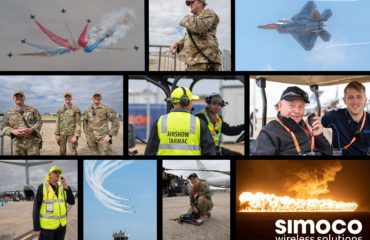
Over the years certain rules have been established to make radio communication go more efficiently. Here are the basic protocols for radio use, this will help you understand and improve your overall experience when using your two-way radio.
Basic Two-Way Radio Etiquette Rules:
- The international radio language is English.
- When using a two-way radio you cannot speak and listen at the same time, as you can with a phone.
- Don’t interrupt if you hear other people talking.
- Do not respond if you aren’t sure the call is for you. Wait until you hear your call sign to respond.
- Never transmit sensitive, confidential, financial or military information.
- Perform radio checks to ensure your radio is in good working condition.
- Memorize call signs and locations of persons and radio stations you communicate with regularly.
- Decide what you are going say and to whom it is meant.
- Make your conversations as concise, precise, and clear as possible.
- Avoid long and complicated sentences. If your message is long, divide it into separate shorter messages.
- Do not use abbreviations unless they are well understood by your group.
Think before you speak:
4 Golden Rules for Radio Communication:
- Clarity
Your voice should be clear. Speak a little slower than normal. Speak in a normal tone, do not shout. - Simplicity
Keep your message simple enough for intended listeners to understand. - Brevity
Be precise and to the point. - Security
Do not transmit confidential information on a radio unless you know the proper security technology is in place. Remember, frequencies are shared, you do not have exclusive use of the frequency.
Making a call
Follow these easy steps to make a call.
- First listen to ensure the channel is clear for you.
- Press the PTT (Push-To-Talk) button.
- After 2 seconds say “recipients call sign”
- Followed by “This is” and your call sign.
- Once the person replies, convey your message.
Speak the Language
Radio Check – What is my signal strength?
Go Ahead – You are ready to receive a transmission.
Stand-by – You acknowledge the other party, but I am unable to respond immediately.
Roger or Ten Four – Message received and understood.
Negative – Same as “No”.
Affirmative – Same as “Yes”. Avoid “yup” or “nope” as they are difficult to hear.
Say Again – Re-transmit your message.
Over – Your message is finished.
Out – All conversation is finished, and the channel is clear for others to use.
Break, Break, Break – You are interrupting in the middle of communication because you have an emergency.
Read You Loud & Clear – Response to “Radio Check”. This means your transmission signal is good. ″.
Come in – You are asking the other party to acknowledge they hear you.
Copy – You understand what was said.
Wilco – Means “I will comply”.
Repeat – Used before you repeat something.
Standard NATO Alphabet- (used to spell out letters over the radio)
A– ALPHA H– HOTEL O – OSCAR V– VICTOR
B– BRAVO I– INDIA P – PAPA W– WHISKEY
C– CHARLIE J– JULIET Q – QUEBEC X– X-RAY
D– DELTA K– KILO R – ROMEO Y– YANKEE
E– ECHO L- LIMA S – SIERRA Z– ZULU
F– FOXTROT M– MIKE T – TANGO
G– GOLF N- NOVEMBER U – UNIFORM
Click here for more information on our product range.
If you would like to talk to us and see how we can help your organisation click here.


